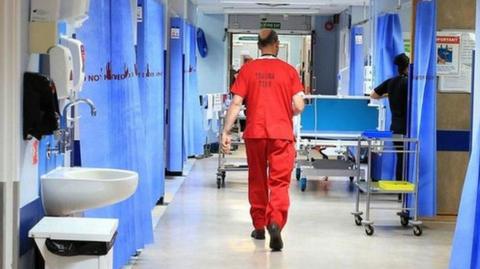Committee chair and Tory MP Sir Geoffrey Clifton-Brown said the changes to NHS England and local health boards amounted to a major structural reform.
He said strong decision-making and experienced staff would be vital to manage a period of "huge pressure" for the NHS.
"It has been two months since the government's decision to remove what, up until now, has been seen as a key piece of machinery, without articulating a clear plan for what comes next – and the future for patients and staff remains hazy," he added.
NHS England, which employs nearly 15,000 staff, is in charge of £193bn of public sector money this year.
The reduction in staffing of abolishing NHS England is expected to save £400m, while the cut in local health board staff is expected to add another £700-750m.
A spokeswoman for the Department of Health and Social Care said the changes would eliminate "wasteful duplication" and a joint board was already working on detailed plans.
"Serious reform is needed to tackle the challenges facing the NHS," she added.
Matthew Taylor, chief executive of the NHS Confederation, which represents NHS trusts, said the changes "marked the biggest reshaping of the NHS in a decade".
He said that while many managers in the NHS understood the need for change, the lack of detail and how the plans fitted in with the forthcoming 10-year plan were "a cause for concern" for those running the health service.
